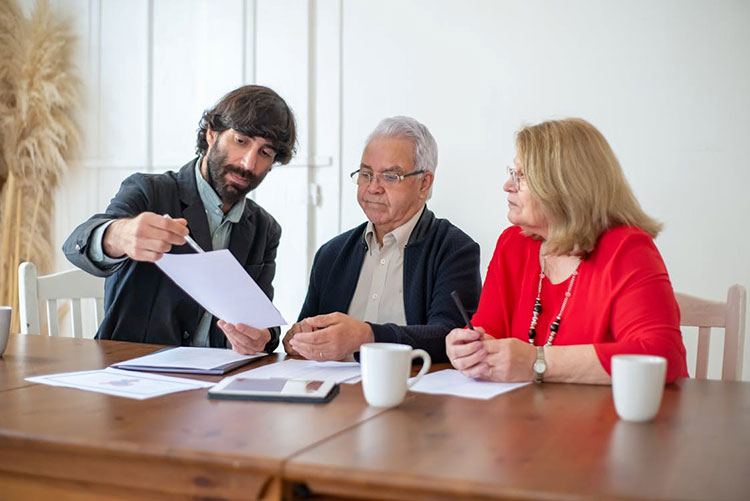
Magnuson Lowell Blog
Each week we post a blog about relevant legal issues. Glance through our various topics to learn more about a particular legal situation.
These articles are for limited informational purposes only and are not, nor are they intended to be, legal advice. You should not rely on this information for your case and should consult with an attorney for advice regarding your individual situation.
Most Recent Posts ...
Posted on: 3/24/2025
Posted on: 3/17/2025
Posted on: 3/10/2025
Posted on: 3/3/2025
Search All Blog Posts
Blog Post Archive Categories
- Reconciling After a Divorce Filing
- Dividing Retirement in Divorce - Do I Need a QDRO?
- Options for Dealing with Real Estate in Your Washington State Divorce
- Positive Thoughts After Losing a Family Law Motion
- Supervised Visitation for Washington Parenting Plans: What You Need to Know
- Filing for Immediate Restraining Orders in King County
- (Redmond/Criminal Defense) Time Matters for a DUI
- (Redmond/Criminal Defense) Field Sobriety Tests - What Not to Do
- (Redmond/Criminal Defense) - The (Redmond/Criminal Defense) - The Ability to Remain Silent
- Battling Father Time: Crafting Your Legacy with Precision
- Tips for Talking to Your Family About Your Estate Plan
- How to Choose Your Personal Representative for your Will
- What is a Trial Continuance in Washington State?
- Renewing a Domestic Violence Protection Order in Washington State
- Little Known Washington Driving Laws
- Divorce Mediation Tips for High-Conflict Couples
- Dealing with Small Business During a Divorce
- The Role of Financial Advisors in High-Asset Divorces
- Why Expediency is Important After Your Car Accident
- Understanding Independent Medical Examinations (IMEs) in Washington State
- It only takes 3 seconds...
- Gotta love our court system!
- (Redmond/Crazy Lawsuit) The Walking Dead: or Not!
- (Redmond/Crazy Lawsuit) Here Comes Football - and Litigation
- Honoring Our Heroes: A Thank You to All Who Have Served!
- Happy Halloween from Magnuson Lowell
- 10 Tips You Need To Know Before Getting On A Motorcycle
- Top 10 Tips You Need To Know Before Getting On A Motorcycle
- Top 10 Tips Riders Need To Know Before Getting On A Motorcycle
- In a Car Collision...Now What?
- Understands Washington family law
- Has a calm, assertive communication style
- Can keep both parties focused on the issues
- Uses structured mediation techniques to minimize conflict
- Understand your rights and legal options
- Prioritize key issues (custody, finances, support)
- Create a plan for negotiation and compromise
Divorce Mediation Tips for High-Conflict Couples

Divorce is rarely easy, but for couples with high levels of conflict, the process can feel overwhelming. Emotions often run high, making it difficult to communicate, compromise, or focus on the future. Despite the tension, many high-conflict couples still benefit from divorce mediation, which is a process that encourages resolution without the stress and cost of a trial.
At Magnuson Lowell, P.S., we’ve helped many Washington couples navigate mediation, even in the most contentious cases. With the right preparation and mindset, mediation can lead to a more efficient, less emotionally draining divorce.
What Is Divorce Mediation?
Mediation is a voluntary, confidential process where divorcing spouses work with a neutral third-party mediator to resolve key issues, such as property division, parenting plans, and spousal support. Unlike a judge, the mediator doesn’t make decisions. Instead, they help guide both parties toward mutually acceptable solutions.
In high-conflict cases, mediation offers a more controlled environment, helping reduce confrontation and focusing on problem-solving.
Choose the Right Mediator
Not all mediators are the same. In high-conflict cases, it's important to select a mediator with experience managing emotionally charged disputes. Look for a professional who:
Most mediators also offer virtual sessions, which can help reduce emotional intensity by allowing both parties to remain in separate locations.
Prepare With Your Attorney
Before mediation, meet with your attorney to discuss goals, boundaries, and deal-breakers. Your attorney can help you:
Having a strategy in place makes it easier to stay focused during mediation, even when emotions flare.
Focus on the Future, Not the Past
It’s easy to fall into the trap of rehashing old arguments during mediation. While past behavior may feel relevant, mediation works best when both parties focus on practical solutions for the future.
Shift your mindset from "winning" the divorce to reaching an agreement that allows both parties to move forward with stability and peace.
Be Ready to Compromise
No one gets everything they want in a divorce. Successful mediation requires both parties to make concessions. Identify the issues where you're willing to compromise and those that are most important to you. Flexibility on smaller items often leads to better outcomes on major decisions.
Know When Mediation Isn’t Working
Mediation is a valuable tool, but it’s not right for every situation. If one party refuses to participate in good faith, hides assets, or engages in abusive behavior, your attorney may recommend ending mediation and pursuing court intervention. Your safety and legal rights should always come first.
Get Help from an Experienced Divorce Attorney
Even in mediation, having a knowledgeable attorney by your side is essential. At Magnuson Lowell, P.S., we help high-conflict clients prepare for mediation, understand their legal rights, and reach agreements that serve their long-term interests. We offer free telephone case evaluations, so contact us today to discuss your situation and whether mediation is right for you.




